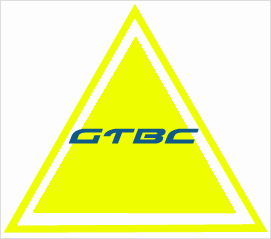Golden Triangle Broadcasting Corporation
| Golden Triangle Broadcasting Corporation | |
|---|---|

| |
| | |
| Type |
Broadcast radio and digital high-definition television network |
| Country |  Cravan Cravan
|
| Availability | Regionally; Internationally |
| | |
| Slogan | Information is free. The truth is priceless. |
| | |
| Workforce | 1,562,348 (world-wide, mostly in-region) (2007) |
| Operating budget | Ç 75,4 bln (2007) |
| | |
| | |
| Key people |
Anthony Vartelli, CEO Carl Annison, Chairman of the Board Luis Martíllo, President Tracy Barnes, Vice President |
| Established |
1927 (radio) 1956 (television) |
| | |
| Website | http://www.gtbc.cr |
The GTBC was created November 14, 1927 in Cravna, Cravan. It first broadcast radio waves for the immediate area in the city, eventually spreading to offices in nations around the Golden Triangle. GTBC became a central broadcaster in the region, outperforming most other corporations of the time.
Transition to Television and Beyond
One July 16, 1956, the first GTBC program was broadcast on national television, and the next day fourteen channels were available to viewers region-wide. GTBC television broadcasts quickly grew from that point, expanding to well over sixty channels by 1980. The Internews Reports, a news agency based out of The Xanthus Conspiracy which was incredibly popular with Triangleites, was bumped into the Channel One spot in 1984, preceding a deal made between GTBC and INR. The GTBC's own news network, GTNN, was bumped into the Channel Two spot.
In 1990, the greatest leap since the jump to television occured for the GTBC when it adopted satellite television as its new broadcasting method. The lineup expanded from sixty channels to thousands upon thousands of channels from around the region and around the world. This has been the GTBC's most profitable venture, where it now services well over 10,000,000,000 souls in the Triangle alone. GTBC has also begun broadcasting to other nations and regions, offering competitive prices with the local corporations.
This article is incomplete because it is pending further input from participants, or it is a work-in-progress by one author.
Please comment on this article's talk page to share your input, comments and questions.
Note: To contribute to this article, you may need to seek help from the author(s) of this page.
